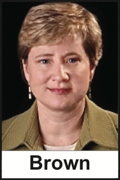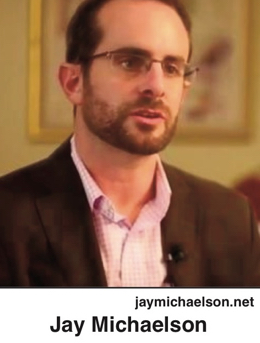Rascals case in brief
In the beginning, in 1989, more than 90 children at the Little Rascals Day Care Center in Edenton, North Carolina, accused a total of 20 adults with 429 instances of sexual abuse over a three-year period. It may have all begun with one parent’s complaint about punishment given her child.
Among the alleged perpetrators: the sheriff and mayor. But prosecutors would charge only Robin Byrum, Darlene Harris, Elizabeth “Betsy” Kelly, Robert “Bob” Kelly, Willard Scott Privott, Shelley Stone and Dawn Wilson – the Edenton 7.
Along with sodomy and beatings, allegations included a baby killed with a handgun, a child being hung upside down from a tree and being set on fire and countless other fantastic incidents involving spaceships, hot air balloons, pirate ships and trained sharks.
By the time prosecutors dropped the last charges in 1997, Little Rascals had become North Carolina’s longest and most costly criminal trial. Prosecutors kept defendants jailed in hopes at least one would turn against their supposed co-conspirators. Remarkably, none did. Another shameful record: Five defendants had to wait longer to face their accusers in court than anyone else in North Carolina history.
Between 1991 and 1997, Ofra Bikel produced three extraordinary episodes on the Little Rascals case for the PBS series “Frontline.” Although “Innocence Lost” did not deter prosecutors, it exposed their tactics and fostered nationwide skepticism and dismay.
With each passing year, the absurdity of the Little Rascals charges has become more obvious. But no admission of error has ever come from prosecutors, police, interviewers or parents. This site is devoted to the issues raised by this case.
On Facebook
Click for earlier Facebook posts archived on this site
Click to go to
Today’s random selection from the Little Rascals Day Care archives….
Click for earlier Facebook posts archived on this site
Click to go to
Today’s random selection from the Little Rascals Day Care archives….
Lamb not only unrepentant prosecutor facing voters
 Oct. 24, 2014
Oct. 24, 2014
“As Middlesex County (Mass.) district attorney, (Martha) Coakley defended the convictions of Fells Acres day-care center operator Violet Amirault and her two children, Gerald Amirault and Cheryl Amirault LeFave. The Amiraults are now widely recognized as victims of the mass national hysteria in the 1980s over supposed child sexual abuse in day care centers….
“In 2000, as the case against the Amiraults had all but collapsed, Coakley opposed the 5-0 decision by the Massachusetts Governor’s Board of Pardons and Paroles to commute Gerald Amirault’s sentence. To this day, Gerald lives with an ankle bracelet and strict probationary conditions, despite a growing number of people who recognize not only that he committed no crime, but that no crime was committed….”
– From “When Prosecutors Seek Higher Office, Questions Often Remain” by defense attorney Harvey Silverglate at Forbes (Oct. 22)
“Coakley… refuses to acknowledge what any rational person should know, that once again (after the Salem witch trials) Massachusetts had indulged in irrational hysteria. Just what we need, a governor who can’t admit she made a mistake….”
– From “Struggling to find the truth behind all the political rhetoric” by Barbara Anderson in the Eagle-Tribune of North Andover, Mass. (Oct. 19)
At the same time voters in Massachusetts will be be deciding whether to elect Martha Coakley governor, those in the First Judicial District of North Carolina will be deciding whether to elect fellow “satanic ritual abuse” prosecutor Nancy Lamb district attorney. Lamb may share with Coakley not only the inability to “admit she made a mistake,” but also the appetite for higher office.
A pediatrician looks back at ‘ritual abuse’
 Feb. 20, 2012
Feb. 20, 2012
Cynthia Brown, medical director of the Mountain Child Medical Evaluation Program at Mission Children’s Hospital in Asheville, was among the first pediatricians credentialed in the subspecialty of child abuse. I asked her to summarize current medical opinion on ritual-abuse day-care cases. Here are excerpts of her response:
“One criticism common to the day-care cases in the ’80s was the inadequate interviewing process used for those children. Some interviewers reportedly made assumptions that abuse had occurred and used leading questions. As a result of these cases, major changes have been made in interviewing protocols. Interviewers go through extensive training and are expected to participate in peer review to assure they are using the protocols correctly.
“In our clinic we meet with the investigators (DSS and law enforcement) and review the child’s initial disclosure….
“We discuss alternative hypotheses….: Could the child have witnessed adult sexual activity accidentally, or through videos or computers? Could the child have been coached? Has the child been inadvertently contaminated by questions asked by a panicked parent?….
“The interview is videorecorded for review by the investigators. It also allows us to evaluate the
caliber of the disclosure and the questioning….
“Several years ago, I spoke with someone involved in one of the day-care cases who now believes there was a kernel of truth in the allegation but that it was obscured by contamination and leading interviews.
“One last thing: The FBI has looked into cases where ritualistic satanic abuse was alleged (not all were in day cares) and has never been able to validate these claims.”
Betsy Kelly’s cruelly long and ugly road to freedom
Nov. 27, 2019
Betsy Kelly is paroled from the Correctional Institution for Women in Raleigh.
 In January she accepted a plea of “no contest” and a sentence of seven years in prison. Since she had already served two years and two weeks in jail, she became eligible for parole almost immediately. But Assistant Attorney General Bill Hart, fuming over her unwavering insistence that she was innocent, reneged on an agreement not to challenge her release, and the Parole Commission kept her imprisoned another 10 months.
In January she accepted a plea of “no contest” and a sentence of seven years in prison. Since she had already served two years and two weeks in jail, she became eligible for parole almost immediately. But Assistant Attorney General Bill Hart, fuming over her unwavering insistence that she was innocent, reneged on an agreement not to challenge her release, and the Parole Commission kept her imprisoned another 10 months.
Betsy Kelly’s no contest plea disqualifies her from the National Registry of Exonerations, but she is surely as innocent as the rest of the Edenton Seven – that is, completely innocent, Bill Hart be damned.
Immunity lets off miscreant prosecutors scot-free
 Aug. 9, 2015
Aug. 9, 2015
“Suppressing evidence, coddling informants, even outright lying are some of the instances of prosecutorial misconduct that sent away nearly half the 1,621 people convicted for crimes they didn’t commit since 1989, according to the University of Michigan Law School’s National Registry of Exonerations. These are only the cases we know about, surely only a small fraction of the wrongly convicted….
“In a 2011 report on 707 such cases, only six prosecutors (none in “satanic ritual abuse” day-care cases) were disciplined. Almost all still have their licenses, and are still practicing law….
“Prosecutors are granted immunity for most kinds of misconduct. It’s easy to see the reasons for this policy: otherwise, every well-heeled convict would sue, clogging the system and making it impossible for prosecutors to do their jobs. At the same time, that immunity is so absolute that prosecutors simply get off scot-free, even when misconduct is established. Even worse, most states lack any meaningful oversight of prosecutors: no commissions, no review boards, nothing.
“America is the only country in which many prosecutors are elected…. The disciplinary commission that sanctioned Mike Nifong – prosecutor of the Duke lacrosse team on false rape charges – noted his upcoming primary election as a motivating factor for his misconduct. The pressure to produce wins has led to a ‘win-at-all-costs’ mentality in some offices, especially when voters reward such behavior.”
– From “It’s Not Just Bad Cops: Prosecutors Run Wild” by Jay Michaelson at the Daily Beast (Aug. 8)
For whatever reason, voters in the First Judicial District declined to “reward such behavior” by Little Rascals prosecutors H. P. Williams Jr. and Nancy Lamb. District Attorney Williams failed to win re-election in 1994, and Lamb lost her bid for DA in 2014.











0 CommentsComment on Facebook